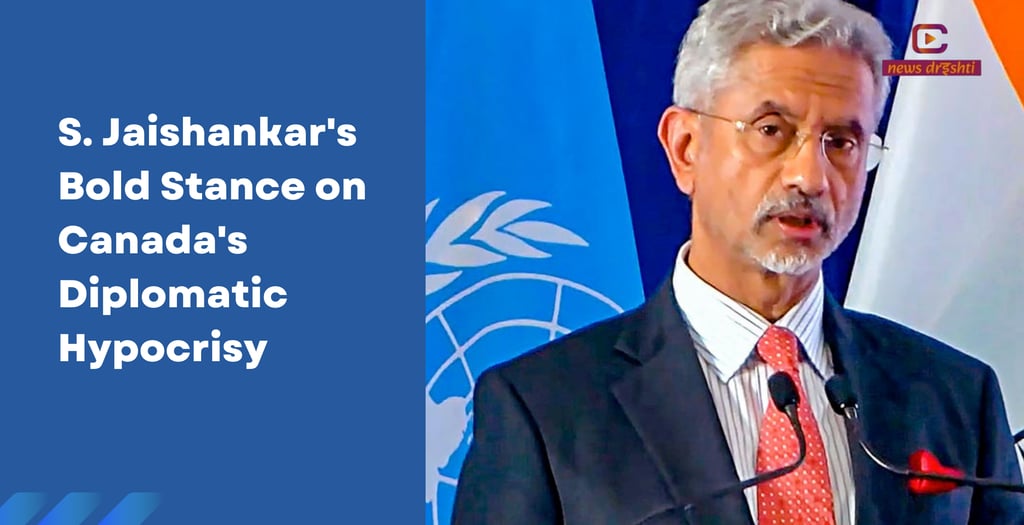S. Jaishankar's Bold Stance on Canada's Diplomatic Hypocrisy
India's External Affairs Minister, S. Jaishankar, recently criticized Canada for inconsistent treatment of foreign diplomats, calling out hypocrisy in their diplomatic conduct. His remarks highlight concerns about the integrity of international relations, urging global leaders to prioritize fairness and consistency in diplomatic practices to maintain trust and cooperation.
INTERNATIONAL


Introduction
India’s External Affairs Minister, S. Jaishankar, recently spotlighted what he sees as hypocrisy in Canada’s treatment of foreign diplomats during ongoing diplomatic talks. This statement comes at a time when global political tensions are on the rise, emphasizing the intricate challenges tied to diplomatic practices and policies.
Context of the Statement
S. Jaishankar’s remarks underscore a shared concern among several countries regarding Canada’s seemingly inconsistent diplomatic behavior. These issues came to light during discussions about how foreign diplomats are treated in Canada, where uneven standards and expectations appear to exist. Jaishankar’s critique goes beyond isolated incidents, pointing instead to broader, systemic concerns that could erode the trust foundational to diplomatic relationships.
Implications for International Relations
Jaishankar’s call for Canada to uphold a fair and consistent approach toward foreign diplomats has larger consequences for international diplomacy. The stability of international relations depends on mutual respect and adherence to established guidelines. When a country appears to act hypocritically, it can upset the delicate balance of trust and cooperation between nations. Jaishankar’s statements are a timely reminder that careful navigation of diplomatic norms is crucial for fostering effective and trustworthy international engagement.
Conclusion
S. Jaishankar’s direct remarks on Canada’s diplomatic approach serve as a prompt for global leaders to reassess their diplomatic practices. His critique highlights the need for open conversations about the protocols that shape international relations. By prioritizing fairness and consistency, nations can build stronger bridges and nurture more reliable partnerships on the global stage.
